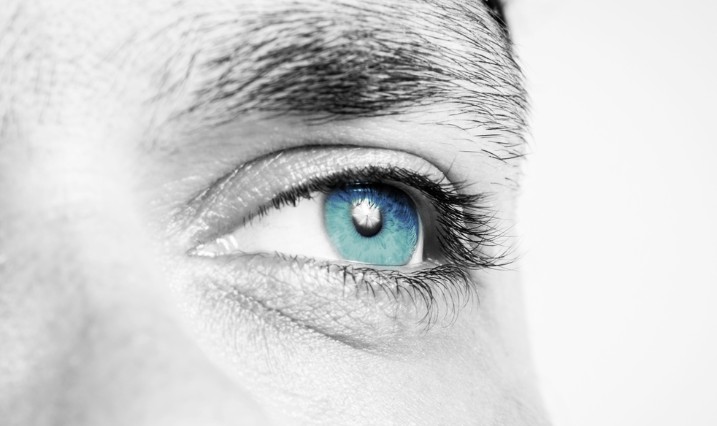Jewish Law
How to Guard Your Eyes from Forbidden Sights? 10 Facts
Discover the spiritual rewards of guarding your eyes, and how every meal can be considered an offering on the altar. These 10 moving facts reveal the importance of each individual act of visual restraint.

1. Hashem Rejoices in Every Single Act of Guarding One's Eyes
Our sages explain that every small effort in this matter, each time a person succeeds in guarding their eyes, has tremendous power. This is alluded to in the verse from Song of Songs: "You have captivated my heart with one glance of your eyes" – Hashem loves in His heart every act of guarding one's eyes, even just one.
2. Guarding One's Eyes – The Beginning of Repentance
The Rebbe of Kobrin explained the verse: "When I restore your fortunes before your eyes, says Hashem" (Zephaniah 3:2), as follows: "When I restore your fortunes" – when a Jew approaches the work of repentance, first he should take himself "before your eyes" – to guard his eyes, and from there he will ascend all the levels.
3. One Who Guards His Eyes Merits Special Protection from Hashem
On the verse "He protected him as the apple of His eye," the 'Tiferet Shlomo' explains that this alludes to the great care a person must take to guard his eyes from seeing evil: just as one guards the pupil of one's eye. The 'Tiferet Shlomo' further explains that just as a person guards his eyes, so too does Hashem guard that person from all trouble and sorrow.
4. One Who Guards His Eyes is Saved from All Trouble and Sorrow
In the tractate Bava Metzia, the Sages say: "Guard for me and I will guard for you – a paid guardian." Rabbi Elimelech Biderman explains that Hashem says to a Jew: 'My dear child, guard your eyes as I have asked, and 'I will guard for you,' I will protect you from all trouble and sorrow, and beyond that you are also a 'paid guardian,' for when you come to the World to Come, your reward will be preserved for you.
5. Guarding One's Eyes Benefits One's Descendants
In the book 'Chasidim': "There is yet another great merit for one who guards his eyes... for every suffering that a person endures in this matter, good is done for his descendants, as it is said: 'He shall see his offspring, he shall prolong his days, fortunate are his children after him.'"
6. One Who Guards His Eyes Does Not Feel the Pain of Death
The 'Chatam Sofer' would say in the name of his teacher Rabbi Nathan Adler, that it was written in the Gemara that the Angel of Death, who is appointed to take a person's soul when their time comes, appears then in the form of an angel full of eyes. Rabbi Nathan Adler explains that all the pain of death comes to a person from not having guarded his eyes, and therefore one who guards his eyes with extra care does not feel the pain of death at all, because that angel has no power to cause him pain. (So wrote the Chida in 'Nachal Kedumim,' Parshat Bereishit)
7. All His Food is Considered as an Offering to Hashem
In 'Mesillat Yesharim' Chapter 26, the Ramchal explains about the person who sanctifies himself further, that 'he himself is considered as a tabernacle, as a temple, and as an altar,' and therefore the food that he eats is considered as an offering that rises upon the flames.
8. One Who Guards His Eyes Sanctifies Hashem's Name
In 'Baruch She'amar' it is said: "Blessed is He who gives good reward to those who fear Him." The Steipler wrote in 'Kryana D'Igrata' Letter 29 thus: "One must also know that when he overcomes and stands firm in trial, Hashem's name is greatly sanctified, and his merit is awesome and mighty." The Steipler further adds: "Even in this world, he will see pleasantness most days, for all the pleasures that a person refrains from for the honor of Heaven, are repaid to him from another place over time."
This generation is called the 'footsteps of the Messiah.' Rabbi Biderman explains that just as the entire body – including the most important organs – relies on the heel, so too does the entire House of Israel rely on our deeds in this generation. Rabbi Biderman further says that "precisely because we are in a 'low place' and darkness, any action that a person takes to drive away the darkness and overcome his inclination – creates a great noise in the heavens."

9. Even if a Person Fails – He Should Not Fall into Despair
Our main work in this generation is to illuminate the darkness of the night. That is, to illuminate the darkness that the evil inclination brings upon us in this dark generation. However, if the evil inclination has already succeeded in causing him to sin, he must not raise his hands in despair, but continue and strengthen himself.
Rabbi Shlomo of Karlin would say that in many places in the Zohar they extolled the virtue of one who rises at midnight. "Even one who breaks the darkness in his heart and overcomes the difficulties of despair – this is considered for him as the greatest of works."
10. Did You Fail? Cover the Past and Start Anew
The righteous explained the words of the Gemara "spreads a cloth and sanctifies" as follows: There is great importance when a person 'spreads a cloth' – that is, he forgets and covers with a cloth all the past that was not good, and spreads a new cloth in renewal, and thus he is sanctified in the holiness of the Eternal Living One.

